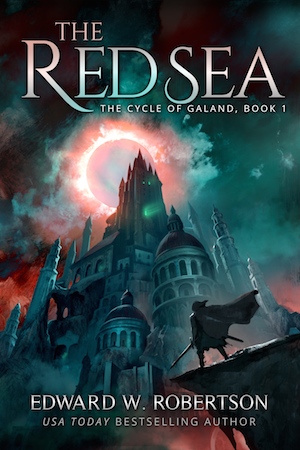After the Writer Pay Rate Flap
The fallout from John Scalzi’s castigation of exploitive pay rates in the short fiction market was intense, frequently confrontational, but largely educational. It brought out a lot of voices big and small–famous novelists, editors of magazines with payrates anywhere between $5 and $500, midrate and fledgling and unpublished writers of all kinds. If you read it all, you learned stuff.
Brief background, the payment rates for short sci-fi/fantasy vary widely. Pro magazine rates, as defined by the SFWA, are 5 cents/word and up–e.g. a 5000-word story pays you $250. Semipros most often pay around 1 cent/word (5000 words = $50), but sometimes run in the 2-3 range. Token mags pay just that: an honorarium, usually in the realm of $5-20.
These are just for first printing rights, of course. Successful short story authors can get paid several times over for a single story once you factor in anthologies, podcasts, foreign translations, collections, etc. Still, it should be pretty obvious that, almost without exception, it’s impossible to make a living solely from the sale of short SFF.
I’ve been paid semipro rates for two of my pieces, with token rates for three others. Of course I’ve sent a lot of stuff to the big places, but they’re hard to crack–they publish, very roughly, about 1 in every 50-100 subissions they receive, and most of these are chosen from already-established writers. When I took a break from novel writing to build up some publishing credits, my goal wasn’t to crack Asimov’s, Analog, and F&SF consecutively. It was just that: to have a few credits to my name. Something to put on the end of a query letter. I took a few cracks at the pro markets, changed my targets to “anywhere that pays,” found an editor who liked me over at Reflection’s Edge, and about a year into it started finding some regular success at other small markets.
After reading all those arguments about valuing your work and how the big markets don’t care about small credits, just good stories, I’m ready to shoot higher. I’ve currently got manuscripts out at six different pro markets, a couple of which I’ve never submitted to before. Though I think there were a couple blinds spots in the professional writers’ collective advice, it was good advice, especially the notion that you’ll never find the success you want unless you dedicate yourself to doing whatever it takes to get published in the pros–including, of course, submitting stories to them.
But there have been benefits. Having several stories published in paying markets (no matter how token the rates) has quelled almost all of my Am I Crazies?. Having a story get a glowing review in Tangent was exhilarating.
I’ve learned, on a small scale, to work with editors to improve the work, to know when what they’re saying is sound advice, and how their edits may not necessarily be perfect, but they’re pointing to a problem that needs to be addressed somehow.
I’ve made a couple hundred bucks. Considering I’ve got about a third of a job right now, even that much (or little) money matters.
I’ve made a few contacts that may advance my career.
And I have, quite frankly, learned a shitload about how to navigate the short SFF fiction wilderness. Without those sales to draw me into that world, I may never have paid attention to all that good advice when Scalzi’s storm broke. By and large, I think he and the others are right, which is why I’m now basically doing exactly what they recommended. But I wouldn’t undo what I’ve done before this. It’s been valuable. It’s taught me things. When competition for publishing at the top is as fierce as the stats reveal, a little knowledge could be all the difference.
The Red Sea
When Dante Galand was just a boy, his father Larsin sailed away to make his fortune. And never returned. Since then, Dante has become a great sorcerer...
More info →- Fantasy (5)
- Science Fiction (16)
- Breakers (11)
- Rebel Stars (3)
- The Cycle of Arawn (4)
- The Cycle of Galand (1)






Leave a Reply